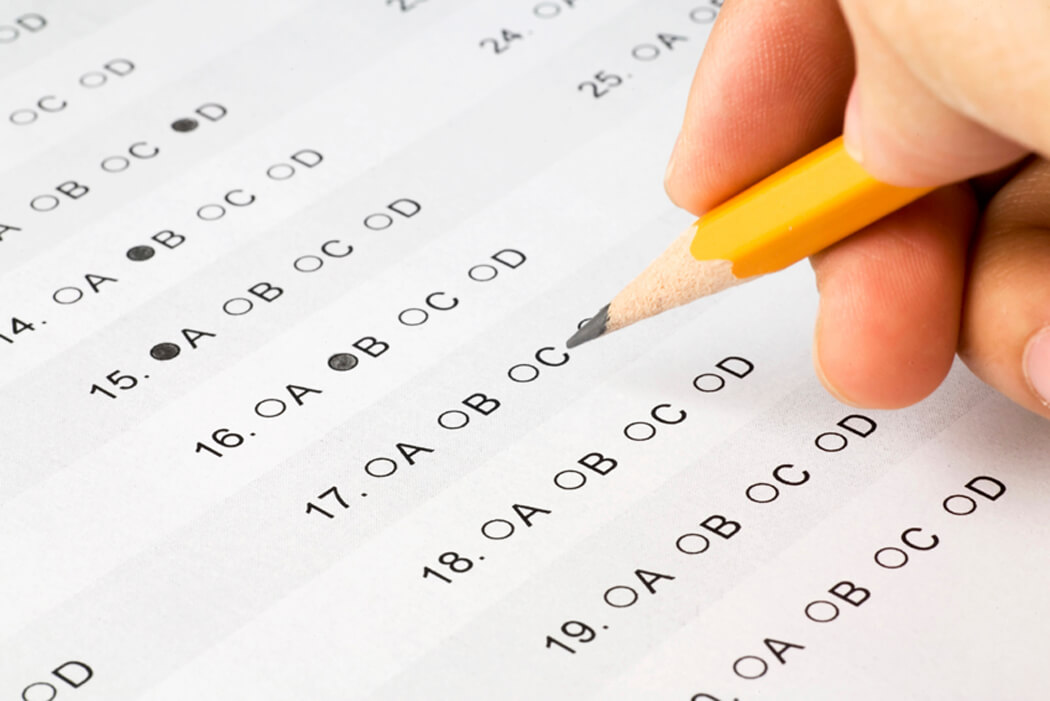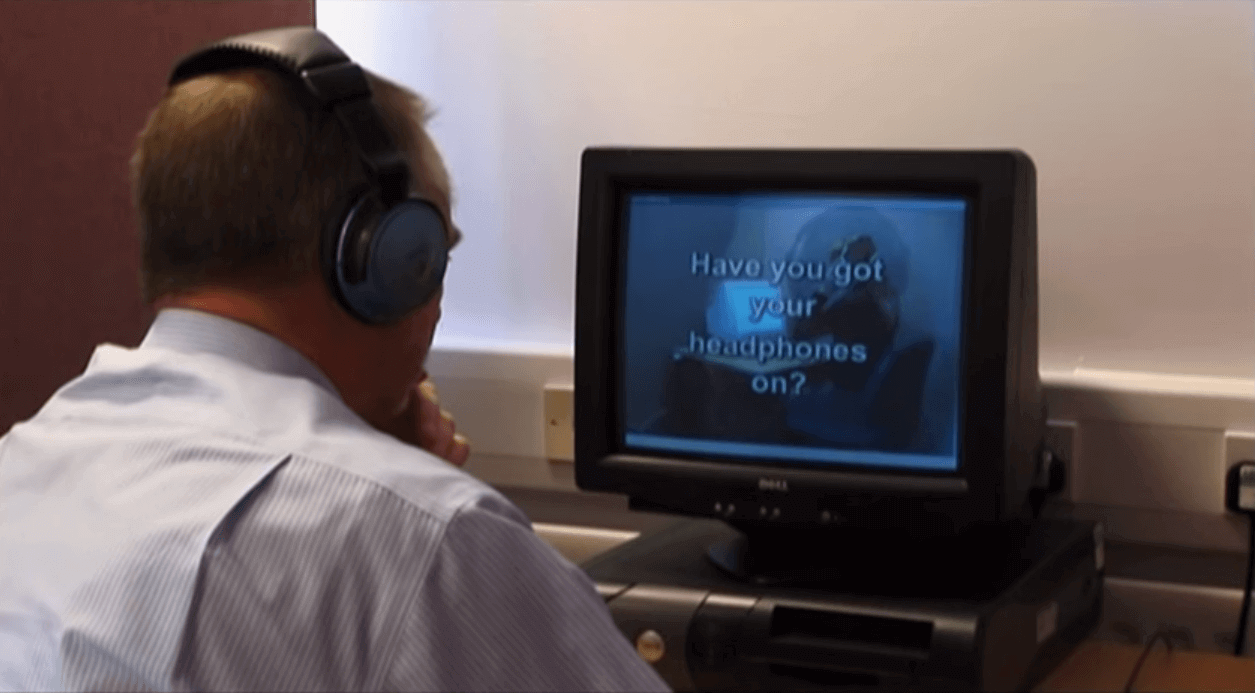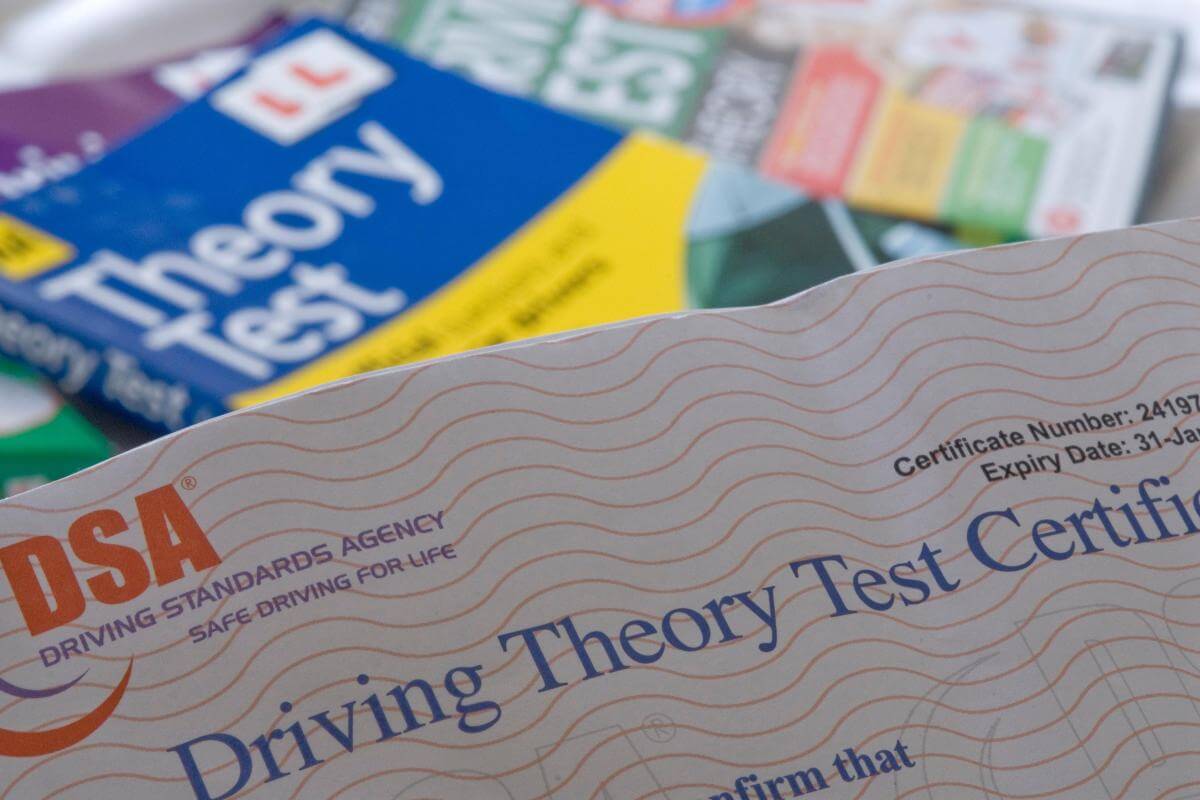Quick and simple insurance
It was so simple to get insurance. Clear and easy guidance insured within minutes which allowed peace of mind when picking up new car on a weekend.
Yesterday
The driving theory test is an important part of learning to drive but for many learners is the part they dread the most. No one likes having to study for exams so we’ve put together a handy guide full of helpful theory test tips for booking, practising for and taking your test.
It’s may be the most frustrating part of being a learner, but you shouldn’t stress out too much about your theory test. Like all exams, knowing what to expect and putting in the practice is the best way to make sure you pass the first time.
We hope these theory test tips will help you get through your exam so you can focus on practising your skills on the road.

One of the first parts of learning to drive is passing your theory test. Without passing, you won’t be able to take your practical exam and therefore will be unable to get a full driving licence. When you start practising on the road, it’s time to start practising for your theory test.
First and foremost you should buy a copy of the Highway Code, which will have all the answers to the theory test questions. You can also buy books with hundreds of test questions for you to have a go at.
Like all exams, you have to put the hours in to ensure you are prepared. Read and reread the Highway Code and take mock test regularly. Ask friends to test you out of the blue to see if you’ve remembered what you’re learning.
There are dozens of mock tests available online but the DVSA’s practice test puts you under test conditions so you can fully prepare.

It’s also worth practising for your theory test by getting out on the road. Whether you’re with an instructor or learning with a friend or family member, being on the road, looking out for hazards and checking road signs is an experience few test guides can match.
Remember if you’re learning to drive without a qualified driving instructor, you must make sure you’re properly insured to drive the vehicle. Learners can get flexible temporary insurance that offers comprehensive cover and protects any No Claims Discounts the vehicle owner has. Policies are available from 1 day to 3 months and could save you time and money on your insurance.
You should only take your theory test when you feel you’ve gained enough experience on the road and practised the exam questions and hazard perception. Booking your theory test is a simple process online, but you must make sure you have the following:
You can cancel or change the time and date of your theory test but you must give three clear working days’ notice.
It’s important to remember that don’t have to take another theory test if you are upgrading your existing driving licence from an automatic to a manual or to tow a trailer.
When the day of your test arrives, you must make sure you take your provisional licence, your paper licence and your passport. If you lose or forget your licence, you will be unable to take the test and will not be entitled to a refund.
You should try not to take too many personal items, like phones, tablets, earphones, bags etc. as you will be unable to take them into the test room with you. They will be put in a locker outside the room for the duration of the theory test.
Cheating on your theory test can not only result in a ban from driving but you could also face a prison sentence.
Once you’ve emptied your pockets of your possessions, you’ll be directed to the test room and given a workstation. You’ll be instructed on how to use the equipment but it’s similar to a school or college computer setup. You should then watch the instructional video using the headphones provided.

For the first part of the exam, you will have to answer 50 multiple choice questions. You will be given a couple of practice questions to familiarise yourself with the format and then your time will start when you’re ready.
You’ll have 57 minutes to answer the 50 questions, some of which will appear as a case study. The case studies will be a real-life scenario and ask you’ll be asked 5 questions relating to it.
Any questions you can’t answer can be flagged so you can return to them at a later point. You shouldn’t waste too much time on one question otherwise, your time may run out. Answer the questions you are sure of first and then return at the end to the flagged ones to give you the best opportunity to pass.
You must correctly answer 43 or more questions to pass this part of the theory test, so take your time and be as confident as possible that you’ve made the right choices before finishing the test.
Once you’ve finished answering the multiple choice questions or the time limit has come to an end, you will be given a short break of up to 3 minutes to compose yourself and get ready for the next part of the exam.
Use this time to remember what you’ve learned about hazard perception and try not to focus on any answers you feel you got wrong in the last section. When you’re ready, take a big deep breath and move on to section two.
The second half of the test will see how well you identify potential hazards. After a short instructional video on how to use the equipment for this test, you will be shown 14 video clips designed to test your reactions.
The clips feature everyday road environments and will contain at least one ‘developing hazard’. One of the 14 clips will feature two ‘developing hazards’. You will get points for when you click the mouse. You should only click if you see a situation where you as a driver would need to change direction, change speed or stop.
You can score up to 5 points per hazard and it’s important to click as early as possible when you see on developing.
Obviously, it goes without saying that clicking randomly, continuously or in a patterned order will see you lose marks for that clip. There is no point in trying to cheat the system so your best bet is to practice these hazards and get practice on the road.
You must score 44 out of a possible 75 marks to pass this section of the test.
When you’ve finished your theory test, you will be told whether you have passed or failed. If you have failed your test, remember you’re not the first to do so and while it’s frustrating, use the opportunity to learn from anything you got wrong.
You must wait at least 3 working days before you attempt to retake the test but there are no limits to how many times you can take it. Just keep on practising and we’re sure you’ll get there.

If you pass your test, congratulations! You’ll be given a letter with your pass certificate number on it. You’ll need this when you go to book your practical driving test. Remember that there is a two-year time limit to your pass certificate.
If you fail to pass your practical test within two years, you’ll have to retake your theory test. So get out there and start practising.
We also currently hold an ‘Excellent’ rating on Trustpilot with over 30,000 reveiws.


After you’ve bought your policy, your documents will be emailed to you instantly so there’s no waiting around.
We use essential cookies to make our website work. We'd also like to use non-essential cookies to help us improve our website by collecting and analysing information on how you use our website and for advertising purposes.
You can agree to accept all cookies by clicking 'Accept all cookies' or you can change your preferences by clicking 'Manage Cookies' below. For more information about the cookies we use, see our cookies policy
We use essential cookies which are necessary to ensure our website works correctly.
We'd like to set non-essential analytics and marketing cookies that help us provide a better experience to our users. These help us improve our website and marketing by collecting and reporting information on the campaigns and web pages you interact with. It also helps us to target our marketing campaigns to people who are most likely to be interested in our services.
We'd also like to set a non-essential cookie which enables us to playback your journey on our website to assist with troubleshooting and to help us improve our website based on the behaviour of our customers.